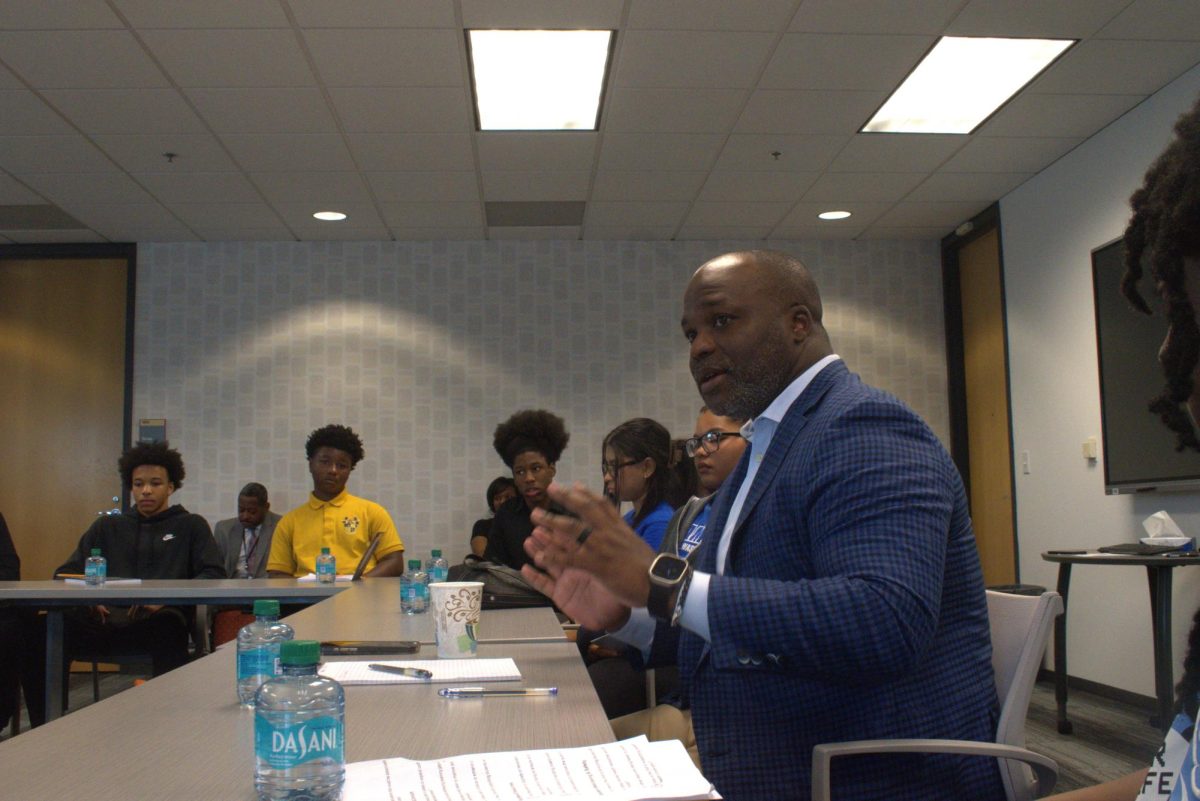
The Georgia Department of Education published a report last December that exposed concerns voiced by educators statewide regarding teacher turnover rates in the state.
The report cited emphasis on standardized tests as the primary source of educators leaving the field, followed by unfair teacher evaluation methods.
Lack of teacher participation in decision-making processes, nonteaching school responsibilities and inadequate level of benefits were also cited as sources of teacher turnover. Now that sources of turnover have been exposed, GADOE and school districts including Atlanta Public Schools have begun to implement strategies aimed to improve teacher retention.
Teachers have noted that high turnover is detrimental to schools because it undermines stability and erodes bonds from the community.
“If you’ve got teachers always coming and going, it breaks down the school community,” 2016 Georgia Teacher of the Year Ernie Lee said. “People just aren’t invested in outcomes because they’re not going to be there that long, or people get burned out and get angry, and they leave.”
One of the primary concerns that teachers voiced was that teacher evaluations do not accurately reflect performance in the classroom and are largely grounded on standardized test scores that fail to holistically account for student achievement.
In response to these concerns, the state has introduced Senate Bill 364, which will reduce the number of standardized tests and decrease the weight of standardized tests on teacher evaluations. Educators believe that HB364 is a necessary measure to address problems associated with low teacher retention rates in Georgia.
“The number of state-mandated tests needs to be reduced and the percentage of teacher evaluations determined by student test scores needs to go down as well,” Meghan Frick, state education department spokeswoman, said.
Teachers believe that SB364 should serve as the first step to shift trends of teacher retention and incentivize teachers to stay in their jobs longer.
“I think Senate Bill 364 is probably a good start to trying to fix the system,’’ Lee said. “What we’re hoping as teachers across the state, is that this is a start of really changing some of the problems that teachers are having to keep teachers in the classroom. If we don’t, we are losing teachers left and right, and we’re going to be in even bigger trouble in the next couple years.”
Another major source of concern cited in the report is that teachers are not getting enough of a say in the decisions that affect their schools.
“Teachers need to be a part of the process,” Frick said. “They spoke out through the teacher survey and need to know their voices were heard.”
This issue has been addressed both at the state and district level with new committees that will bring teachers closer to the decision-making process. One of the efforts that the state has implemented is the Teacher Advisory Committee, which consists of teachers from around the state who will work together to discuss issues that affect teachers in the classroom. APS has also made its own efforts to give teachers a say in the classrooms with the new local governance teams that will function as decision-making units for the individual schools.
However, there may be more issues that will need to be addressed in order to improve teacher retention in the long term. According to Lee, another source of low teacher retention is the increased tuition for higher education.
“I think one of the reasons why people may be leaving is because they have student loans, and what they are making on a starting teacher salary is just not paying the bills,” Lee said.
Lee also believes that the increasing demands on teachers have a negative impact on teacher retention.
“The demands that are put on teachers now are a whole lot more than it was before,” Lee said. “If you have a class with 30 kids, you’re doing a lot of stuff to prove that you’ve taught something, and I think it’s taking the time away from actually just teaching students.”
Lee also noted that it is becoming increasingly difficult to engage with students due to disciplinary issues.
“The middle class is shrinking, [so] you have a lot of kids that are from single parent homes …
the parents are not as involved in raising the kids, so discipline is an issue,” Lee said. “Kids today are much different from kids 10 years ago or 20 years ago.”


![Lamar Young [right] stands with fellow counselors. Young served as a counselor for 15 years at Midtown, providing critical support for students and parents.](https://thesoutherneronline.com/wp-content/uploads/2025/04/IMG_3800-1-1200x584.jpg)



